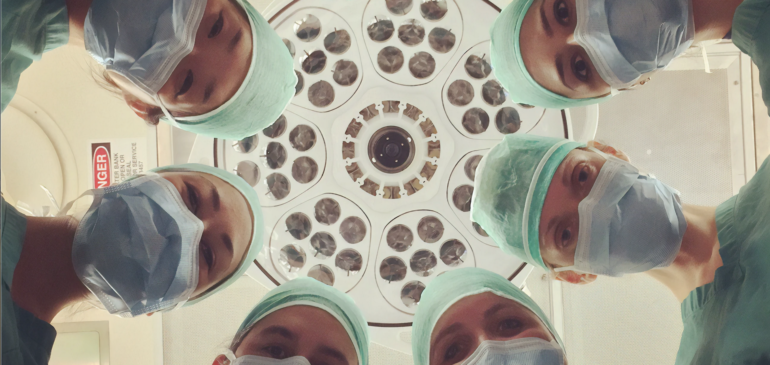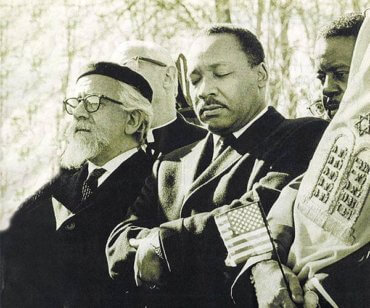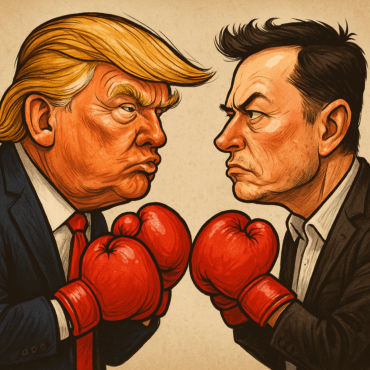
How Does Judaism Determine Which Experts To Trust In Matters Of Health?
Dear Jew in the City-
How does Judaism know which experts to trust on controversial topics such as masks and vaccines? I understand that the Jewish approach is to guard our lives by taking care of our health, but what if there are different medical opinions?
Thank you,
Boruch
Dear Boruch-
Thanks for your question, though I must disagree with your assertion that masks and vaccines are “controversial topics.” Abortion is a controversial topic. Gun control is a controversial topic. Immigration is a controversial topic. These are controversial because people have different ideas about how we should act. Whether abortion should be available on demand, whether civilians should be able to purchase semi-automatic weapons and whether undocumented immigrants should be granted amnesty are matters of opinion. People may feel that one opinion is a moral imperative and the other is morally repugnant but these are opinions nonetheless.
This is not the case with masks and vaccines. Whether masks and vaccines work (and they do) is not a matter of opinion, it’s a matter of fact. As Senator Daniel Patrick Moynihan famously stated, “Everyone is entitled to his own opinion, but not his own facts.”
Do people disagree on the efficacy of masks and vaccines? Absolutely. But that doesn’t make them “different medical opinions.” People also claim that the Earth is flat and that the world is secretly controlled by Jews/Freemasons/Illuminati/lizard people (no joke; Google it). That doesn’t make the shape of the planet or the existence of a global cabal a “controversial topic,” it just means that some people believe conspiracy theories.
The modern anti-vax movement largely sprang from the idea that vaccines cause autism, which has long since been debunked as a fraud. In 1998, Andrew Wakefield published a paper in The Lancet titled “Ileal-lymphoid-nodular hyperplasia, non-specific colitis, and pervasive developmental disorder in children.” Numerous subsequent studies failed to reveal any link between the MMR vaccine and autism. An investigation found that Wakefield had broken a number of ethical codes in his research, including the manipulation of evidence. The paper was retracted in part in 2004 and in full in 2010, when it was determined to be “utterly false.” Wakefield was found guilty of professional misconduct that same year and removed from the Medical Register. The paper has been called “the most damaging medical hoax of the 20th Century,” seeing that it led to an increase in measles and mumps cases, resulting in many needless deaths.
Of course, the anti-vax movement has evolved from there but it’s no less a denial of established fact. A photo currently circulating on the Internet shows a person asking an anti-vaxxer friend which of the following ingredients she finds objectionable; it then goes on to list such unseemly chemicals as ethanol, propyl acetate, butanol and camphor, among many others. When the anti-vaxxer friend replies that she finds all of them objectionable, the OP reveals that the scary list of chemicals is actually a list of the biochemical constituents of an apple.
Sometimes, there are actual differences of opinion, such as whether to treat a problem medically or surgically. I don’t know that Judaism has a magic formula to determine which opinion to follow when there’s a legitimate disagreement between medical authorities but I think we have a pretty good idea how to identify whose opinions should even be considered. Let’s look at how we identify Torah authorities.
There’s a lot that goes into becoming a recognized Torah authority – what we call a “gadol”:
- First of all, such a person must have spent a lifetime immersed in Torah to the extent that he has mastered the Talmud, the Jewish codes of law with all their various commentaries, and copious matters of Jewish thought and philosophy;
- A gadol must possess humility. This is kind of ironic because it means that politically ambitious people don’t become gedolim; people who aren’t even trying become gedolim;
- Gedolim also have to possess yiras Shamayim – “fear of Heaven” – which is a particularly rare commodity;
- A gadol also needs public acceptance. (Rav Moshe Feinstein once explained how he came to be the preeminent Torah authority of his generation: people just started asking him questions and they accepted his answers!)
If all this is how one becomes a gadol, the question remains: how can we know who’s a gadol and who isn’t? How do I know that Rabbi X is a world-class Torah scholar and that Rabbi Y, while a competent community leader, isn’t an influential voice? For this final piece, I think Rav Avigdor Miller had the most germane idea: The best way to know that someone is a gadol is that other gedolim recognize him as such. A person can be recognized in his own community as a local authority, and that’s no small thing, but he’s only a gadol once existing gedolim consider him to be one.
Just having the title rabbi doesn’t automatically make one qualified to innovate. Gedolim can make rulings that are more “outside the box” than local synagogue rabbis can. Even if a gadol’s novel position isn’t accepted, it can become a topic for further study and used in future rulings rather than being summarily dismissed. If a rabbi who works as a high school Talmud teacher (or who answers random questions on the Internet) proposes a halachic innovation, it not only won’t be accepted, it will be discounted as simply wrong.
Now let’s apply this to medical authorities. First and foremost, they must have a world-class breadth and depth of scientific knowledge. Is this the case with anti-vaxxers and anti-maskers? I suspect not. But even if you can find such an outlier, they’ll still fail the ultimate test: acceptance by the recognized authorities. Someone may have the title “doctor” – maybe even from a prestigious institution – but if study after study proves them wrong, they’re going to end up like Andrew Wakefield (and people are likely going to die). Similarly, if the CDC and WHO say that wearing a mask will save lives, don’t listen to some lone rando on the Internet.
Yes, some conspiracy theorists will claim that you “drank the Kool-Aid.” Conspiracy theorists cling to false beliefs because it gives them a feeling of control over the world. But while it’s fairly innocuous if someone wrongly believes that the world is flat or that man never walked on the moon, wearing a mask is a matter of life and death. So don’t give credence to crackpot theories by equating them with actual science.
Sincerely,
Rabbi Jack Abramowitz
Educational Correspondent
Follow Ask Rabbi Jack on YouTube
If you found this content meaningful and want to help further our mission through our Keter, Makom, and Tikun branches, please consider becoming a Change Maker today.







